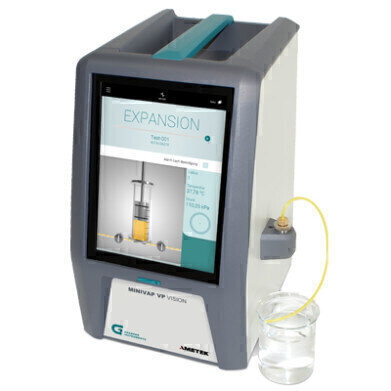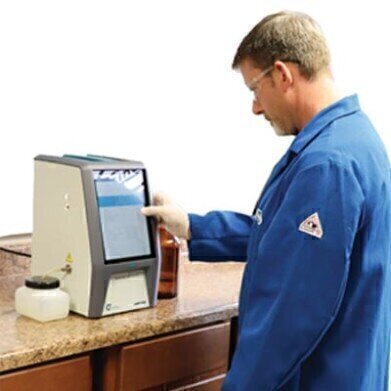-
 The MINIVAP VP VISION from Grabner Instruments
The MINIVAP VP VISION from Grabner Instruments -
 The MINIVAP VP VISION from Grabner Instruments
The MINIVAP VP VISION from Grabner Instruments
Analytical Instrumentation
Robust and reliable analyser offers perfect solution to vapour lock in ground vehicle engines
Jun 11 2021
Petroleum or gasoline vapour lock result in engines stalling, especially in heavy traffic with rising temperatures or after a car has been parked up, even for a short time, following a long journey when hot engines often refuse to start. Higher temperatures and altitudes increase the likelihood of petroleum vapours causing vapour locks which stop fuel from reaching the engine. Regulatory bodies, including the USEPA, have created rules and methods to alleviate these problems. ASTM D4814 specifies the properties required of automotive fuels in ground vehicles with spark-ignition engines in a wide variety of conditions, while ASTM D5188 is the standard test method for vapour-liquid ratio temperature determination of fuels (evacuated chamber and piston-based method).
How does ethanol blending affect vapour lock?
Refineries are adding far more ethanol to petroleum/gasoline and, with climatic temperatures on the rise, the demand to monitor fuel for potential vapour lock problems is also rising. Many of the older engines simply were not built for use with these modern fuel blends. Many US states have chosen to opt for the E10 law, this accepts up to 10% ethanol (EtOH) in the petroleum or gasoline. Regulatory bodies, such as the USEPA, have needed to adapt their directives on petroleum volatility to keep emissions as low as possible whilst ensuring that the engines remain operational.
Why is monitoring vapour liquid ratio temperature important?
In short: because ethanol blending affects vapour pressure. Ethanol has a far lower vapour pressure level than standard petroleum or gasoline, so adding 10% ethanol to a fuel blend significantly reduces the vapour to liquid ratio. Therefore vapour lock will occur at much lowert temperatures in petroleum that has been blended with ethanol than standard petroleum/gasoline.
Are modern injection engines affected by vapour lock?
Without accurate vapour pressure analysis – most definitely. Vapour lock has become a major hurdle when designing and developing new engines. Some modern engines reach temperatures that get as high as 140°C, vapour lock tends to occur when engines are hot, which means that the vehicle may not restart if you stop the vehicle having travelled a long distance already, especially when using the modern, blended fuels. Manufacturers of ground vehicles now need to detect vapour pressure up to 5 to 6 bar and keep a keen eye on vapour pressure when developing their latest engines.
Grabner Instruments created their MINIVAP VP VISION to measure temperature at different vapour-liquid ratios to comply with the ASTM D5188 method. This instrument is an ideal solution for monitoring vapour pressure of petroleum and ethanol blends at high temperatures. The MINIVAP VP VISION meets all of the requirements set out by international regulatory bodies and facilitates safe and reliable developments in automotive engine advancements. This highly respected analyser offers best in class precision and a pressure range of 0-2,000 kPa and has earned a plethora of international certificates that underline its excellent level of reliability and durability. The MINIVAP VP VISION was built around Grabner’s leading edge Cockpit™ technology and features unparalleled networking capabilities and allows global access to analysers.
Digital Edition
PIN 25.4 Aug/Sept
September 2024
Analytical Instrumentation - Novel and Rapid LSC method for the analysis of biogenic carbon in fuels Measurement and Testing - Matrix evaluation on the Xplorer-V with Vectra autosampler accordi...
View all digital editions
Events
Nov 04 2024 Abu Dhabi, UAE
Nov 04 2024 Kigali, Rwanda
Nov 05 2024 Toronto, Canada
Nov 05 2024 Paris, France
Nov 12 2024 Cologne, Germany


















